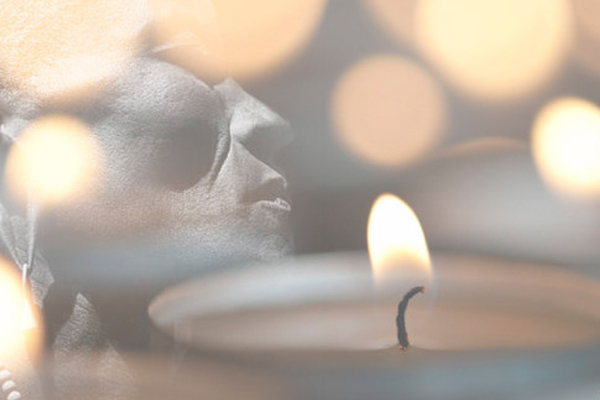Connecting with our ancestors has intrigued humanity for millennia. This phenomenon transcends cultural boundaries, resonating deeply within individuals who seek to understand their place in the human family. In a rapidly changing world, the yearning to reconnect with one’s roots and heritage presents a profound opportunity to explore identity through the lens of Bahá’í teachings. Hence, examining ancestry not only unveils personal histories but also emphasizes the interconnectedness that binds all members of the human family.
The Bahá’í Faith accentuates the oneness of humanity as a central tenet. This doctrine implores adherents to transcend narrow divisions that segregate societies, fostering a milieu of unity and peace. It is within this framework that individuals can reflect on their ancestral lineage, recognizing not just personal heritage but also the shared journey of humanity through generations. Each ancestral link serves as a reminder of the myriad experiences and contributions that have shaped our collective existence.
One may wonder why the desire to connect with ancestors resounds so profoundly in contemporary society. The answer often lies in an essential human quest for meaning and belonging. In times of uncertainty or upheaval, individuals frequently turn towards the past to glean wisdom and insight. Bahá’í teachings illuminate the importance of looking to history as a guide, suggesting that understanding our ancestry can yield insights into the collective psyche of humanity.
The exploration of our lineage can be enriched through various practices and reflections encouraged by Bahá’í principles. For instance, community gatherings where stories are shared illuminate the tapestry of family histories, offering perspectives that can reveal shared experiences across generations. Such engagements not only strengthen familial bonds; they also create a communal sense of belonging, illustrating how interconnectivity plays a critical role in our understanding of one another.
Moreover, the concept of ‘consultation’ in Bahá’í teachings is of utmost significance here. When individuals gather to discuss their familial narratives, they engage in a shared discourse that cultivates empathy and understanding. This process also encourages the reflection of personal biases and misconceptions about one’s lineage, promoting a more holistic view of history that celebrates diversity while focusing on the shared aspirations of humanity.
In aligning with the idea of unity, Bahá’í teachings propose that acknowledging our ancestors serves a dual purpose: it pays homage to their sacrifices while simultaneously affirming our commitment to advancing human welfare. By recalling the struggles and achievements of those who came before us, we not only honor their legacy but also inherit the philosophical and moral imperatives that guide us in our contemporary lives.
The deep-seated fascination with ancestry is often linked to an innate desire to articulate identity. Each person is a unique amalgamation of experiences, traits, and enlightenment distilled from generations of forebears. Bahá’í perspectives underscore that in recognizing our unique identities, we also perceive the shared humanity that transcends cultural and geographic barriers. This cyclical intertwining of the personal and collective engenders a profound appreciation for the rich diversity inherent in human experiences.
Furthermore, there is a spiritual dimension to this exploration of ancestry. The Bahá’í Faith posits that our souls are eternal and have transgressed through multiple lives and times. Engaging with our ancestral history may provide an opportunity to connect not just with the physical legacy of those who preceded us, but also with their spiritual journeys. Such reflections amplify our understanding of the broader continuum of human existence, encouraging us to glean spiritual lessons embedded in our lineage.
The inquiry into ancestry can also augment a sense of responsibility towards future generations. Bahá’í teachings emphasize the importance of fostering an ethical framework for children and young individuals. By understanding the sacrifices and aspirations of our ancestors, we can imbue younger generations with values that promote peace, love, and unity. The continuity of these values echoes throughout the human family, further reinforcing the need for a collective commitment to harmony and understanding.
As we delve deeper into our ancestral connections, we come to appreciate the rich tableau of cultural narratives that inform our identities. The Bahá’í Faith encourages the love and appreciation of culture as an essential facet of human diversity. Engaging with the stories, traditions, and teachings of our ancestors can provide invaluable insights into how culture shapes values, beliefs, and communal practices. This acknowledgment of cultural diversity is key to the essential Bahá’í principle of oneness, reinforcing the idea that varied experiences enrich our collective humanity.
In summation, the journey of connecting with one’s ancestors is a profound and multifaceted endeavor. It encompasses a search for meaning, belonging, and unity within the grand tapestry of human existence. Bahá’í teachings offer invaluable insights into this exploration by emphasizing the importance of understanding our shared history while nurturing a commitment towards collective progress. By engaging with our roots, we not only honor those who came before us but also fortify the bonds that unite us as a diverse and dynamic human family. In this quest, we may find not only our place in the world, but also a deeper appreciation for the unity that binds us all.
